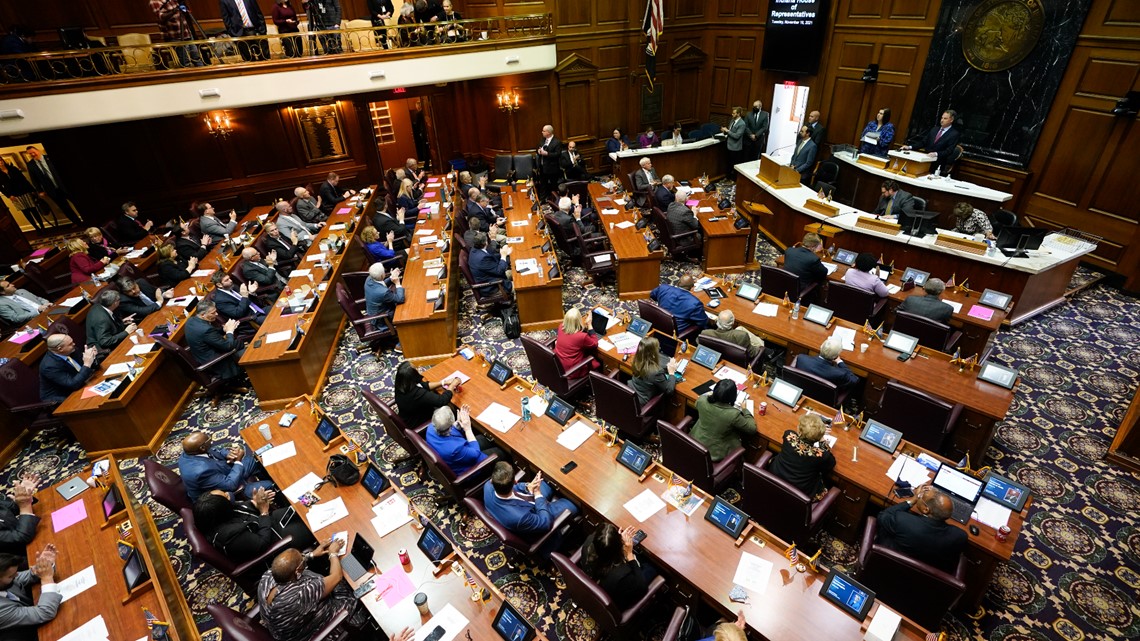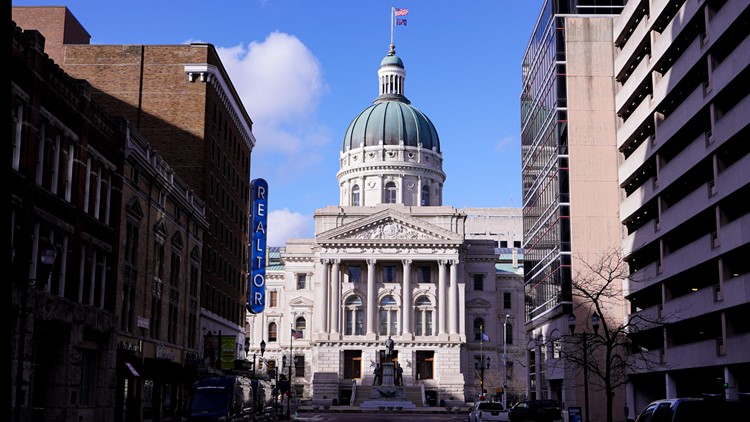NEW YORK — "How are you doing today, Buddy?" the St. Vincent's intensive care nurse asked me in late November 2019.
To which I replied, "Why do you all call me Buddy?"
I was in ICU suffering from a bilateral subdural hematoma just five months before the COVID-19 pandemic engulfed Indiana's medical system. These nurses kept me alive. I remember thanking them for their care during my hospitalization, and I do so again almost two years into this pandemic that now seems unrelenting.
We've gone from a statewide lockdown in 2020, to universally available vaccines a year later. Now, only 50% of Hoosier adults have chosen to be vaccinated, fueling what is essentially a fifth COVID surge that portends to a third bleak winter. While many of us have resumed pre-pandemic lifestyles, these ICU nurses are still living in a hell that has seen more than a million of us infected, 16,788 deaths at this writing, making this the most lethal public health sequence in Indiana history.
It has to be deflating for nurses and doctors leaving crowded ICU wards filled with patients who opted not to protect themselves.
This comes as the Indiana General Assembly had planned a Monday Nov. 29 vote to pass legislation that "ends the public health emergency." According to a preliminary draft of a bill, it would all but prohibit employer vaccine mandates and restrict testing mandates. "If this bill passes on the 29th and effectively says we've addressed the governor's concerns on ending this, I would hope at that point that the governor would then not extend this emergency," said Republican House Majority Leader Matt Lehman, noting the current order expires Dec. 1.
According to the Associated Press, the proposal would reject an appeal from the Indiana Chamber of Commerce to leave such decisions up to employers and strike against Indiana University's student vaccine mandate that a U.S. Supreme Court justice let go into effect.


But this public health emergency is not over. As of Tuesday, the CDC had recorded 386,233 COVID deaths in 2021, compared with 385,343 in 2020. This surge in deaths this year are more than 90% among the unvaccinated.
Indiana COVID hospitalizations have risen more than 31% in the past two weeks, according to the Indiana State Department of Health. Hospitals in Michigan, Wisconsin and Minnesota are swamped and summoning their National Guards for assistance. Former U.S. surgeon general and Indiana state health commissioner Jerome Adams says a winter COVID-19 surge in Indiana isn't a matter of "if" but "how bad."
The shutdowns imposed by President Trump and Gov. Eric Holcomb in March 2020 came as less than 1% of us had been infected. They were designed to prevent a wholesale swamping of our medical systems.
Gov. Holcomb and President Biden will not impose for another shutdown. Biden has opted for a widely criticized testing mandate for employees of companies numbering more than 100 workers, if these workers do not vaccinate.
Holcomb created a 15-person public health commission in August to assess that state's public health infrastructure. This commission will take the long view. Jon Macy, Indiana University School of Public Health associate professor, told the Indiana Daily Student, "This is more of a long-term look at the public health infrastructure in Indiana and a better understanding of what our strengths and weaknesses are. Hopefully coming up with an action plan to build on the strengths and address the weaknesses."
But the General Assembly was in a rush mode. "We ... frankly have a concern with the process that this is going under. January will be my 42nd legislative session, and I've never seen a hearing on a preliminary draft," Chamber President Kevin Brinegar said at a hearing last Tuesday.
Lehman said his "preliminary draft" is designed to "protect individual rights," explaining, "I've had people that are saying 'I'm on the chopping block. This can't wait until January. I think we need to take this action now.'"
On Wednesday, General Assembly leaders pulled back. Senate President Rodric Bray said "ongoing complexities of the issues raised and the potential unintended consequences" have prompted him and House Speaker Todd Huston to delay legislation until January. According to sources, some Senate Republicans balked at the fast-tracked legislation.
Meanwhile, the state and nation are hemorrhaging medical workers. According to a Morning Consult Poll this past week, 18% of health care workers have quit their jobs during the COVID-19 pandemic, most citing burn out. Among health care workers who have kept their jobs during the pandemic, 31% have considered leaving, while 79% said the national worker shortage has affected them and their workplace.
"Our nurses and our caregivers have been battling this for 18 long, long months and they are getting really burned out. They are getting exhausted," Dr. Ram Yeleti, chief physician executive for Community Health Network, told 13News.
Dr. Adam B. Hill of Riley Hospital told a news outlet, "It just felt like this exhale of tears, of anxiety, worry, fear of the uncertainty, some anger, a little bit of emotional exhaustion that our wells of empathy that we pour out every day are running dry."
Memo to General Assembly Republicans: There's more than "personal freedom" at stake here. Taking the long view ... once this terrible pandemic ends ... would best serve all Hoosiers.
The columnist is publisher of Howey Politics Indiana at www.howeypolitics.com. Find Howey on Facebook and Twitter @hwypol.



